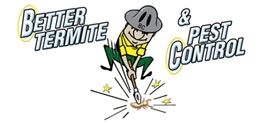How To Choose a Pest Control Company
There are a number of factors you can take into consideration when selecting the right pest control expertfor you. Some things you might consider include qualifications and licensing, treatment methods, years of experience, customer reviews, and cost.
Below, we discuss each of these factors in more detail.
Does the company have a valid license and permits to perform pest control?
Per the United States Environmental Protection Agency (EPA), all pesticide applicators and those that supervise them need to be licensed at the state level. The EPA maintains minimum competency standards, and the District of Columbia regulatory agencies take care of the granting, maintaining, and revoking of licenses.
Is the company a member of any professional organizations?
Pest control companies can obtain optional certifications from QualityPro or similar trade organizations. These certifications can help you evaluate the quality of a company's products. For example, the GreenPro Service Certification indicates comprehensive and effective pest control methods that are safer for humans and the environment.
There are various professional organizations that a pest control company can belong to. While not mandatory, membership in organizations like the National Pest Management Association (NPMA) or state-level organizations help show a company's reputability. After joining an organization like the NPMA, a company receives access to resources, education, and a network of other professionals with whom to discuss best practices.
Professional Experience and Specialties
A pest control company's website can tell you how many years it has been in business and what type of pests it specializes in exterminating. Online reviews can also give you some insight into a company's experience dealing with specific pests. If you're unable to find this information online, you can try reaching out to the company directly.
Reviews and Recommendations
You can look up a company's Better Business Bureau (BBB) rating, browse reviews on local review sites or social media, or check the standing of its license via the District of Columbia licensing board.
Cost of Services and Guarantees
Cost is probably high on your list of priorities when hiring someone for pest control. Cost can be influenced by the size of your house, your location, the type of pest being treated, and other factors.
Many companies offer free on-site estimates at the beginning of their process, to help you decide whether it fits into your budget. You can also ask whether a company offers a satisfaction guarantees, meaning that it will continue to treat your pest problem until it is solved.
Safety and Treatment Methods
Your preferences regarding safety for yourself, your children, your pets, and the environment can affect the provider and the treatment methods you choose.
Safety
Make sure to ask your pest control provider if the chemicals they're using are low toxicity or non-toxic, and if not, what kind of precautionary measures they plan to take. Any pesticides that are not minimum-risk chemicals should be registered with the EPA. Your pest technician should be able to supply you with information about all chemicals they plan to use.
Treatment Methods
Organizations looking to reduce their use of chemical pesticides often implement procedures such as Integrated Pest Management (IPM). Using IPM involves a series of steps:
- Identify the source of the pest problem and determine if immediate action is required.
- Determine the best and safest course of action.
- Use a combination of biological, cultural, physical, and mechanical controls to manage the pest problem.
- Employ chemical controls only when required, and always with other solutions for effective long-term pest management.
- Assess the outcome and continue with additional pest control as needed.
















